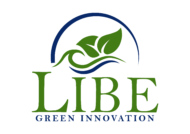Our programs
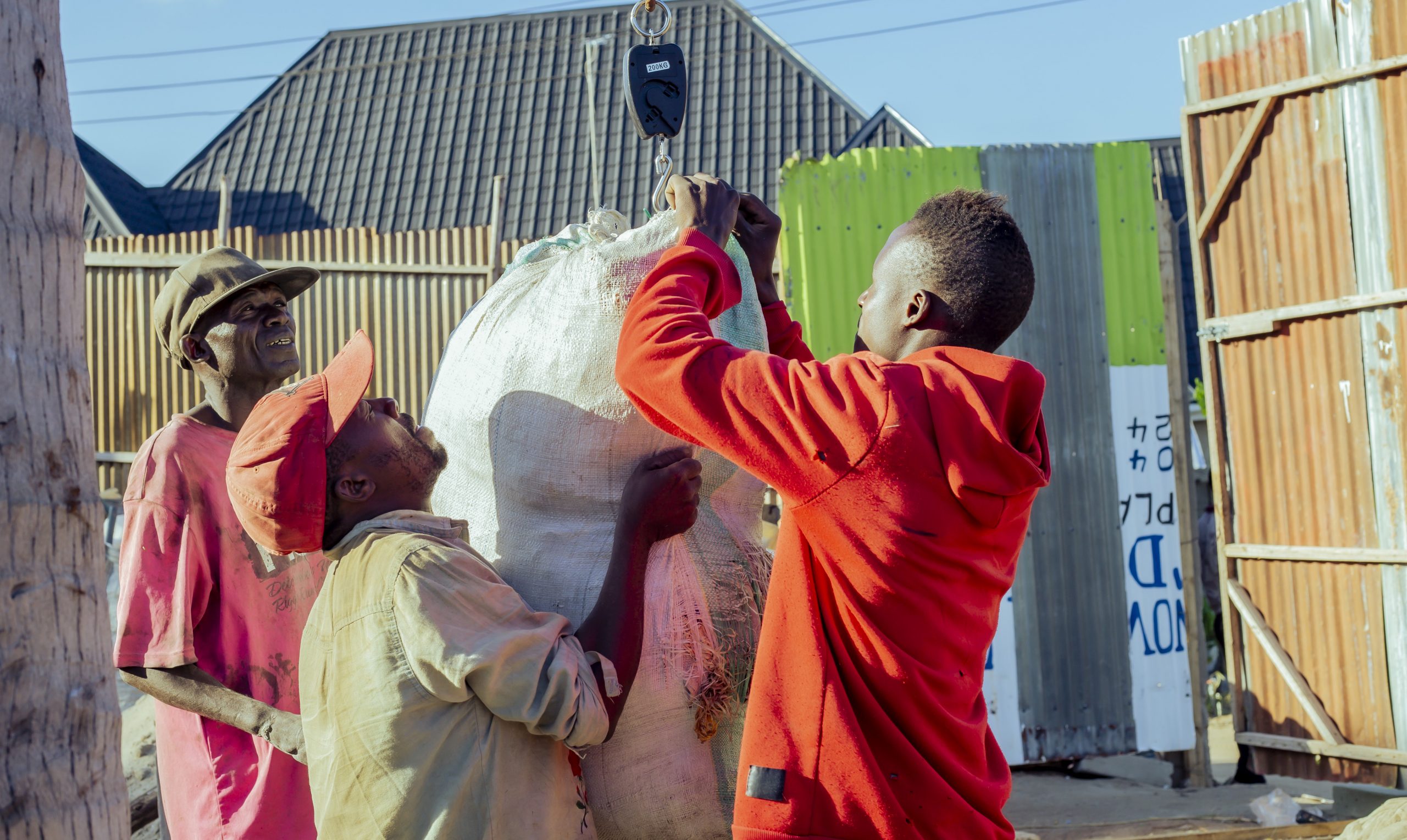
Our Material Recovery Facility (MRF) is in the Kinyerezi Mwanzo Mgumu area at Ilala District, Dar es Salaam Region. At our MRF, we collect different recyclable materials ranging from Polyethylene Terephthalate (PET) which is the most collected item, High-Density Polyethylene (HDPE) Sacks, and polyphenylene vinylene (PPV) among other recyclable materials.
MATERIAL RECOVERY FACILITY
At our facility mostly we work with the informal Waste Pickers (WP) that bring out their waste in exchange for money in the future, we hope to start collecting from other small centers nearby and establish other subcenters in various places in Dar es salaam.
When the waste is brought to our facility, we perform sorting of waste according to their respective type where each waste stays in its section. This facility has sections for easy sorting and management where each type of waste stays within its respective class for easy packing to the industry for processing of new material

Libe Green Innovation works in solidarity with informal Waste pickers (WPs) collecting, sorting, recycling, and selling materials that someone else has thrown away. We aim to improve the lives and their families in Dar es salaam city. Our mission is to enable the waste pickers community (WPC) to have a greater ability to live a secure and dignified life. Our goal is to make sure their work is recognized and their inclusion in the formal waste management system recognizing the value these workers bring to the local economy, particularly waste collection, and recycling sectors, and supporting their health and safety so they can sustain their livelihoods
The estimated number of informal Waste pickers (WP) in Dar es salaam is 15000. Despite being a critical part of the city’s solid waste management ecosystem and economic contribution to the region, the waste pickers and their families face a lot of hardships and challenges from society. We believe that waste pickers contribute to local economies, public health, and safety, and environmental sustainability. In Tanzania, many waste pickers or collectors are disrespected, humiliated, and discriminated against, have low social status, have miserable living and working conditions, and get little support from local governments.
Waste Picker’s inclusion
We focus to take a holistic approach in improve their living conditions as well as addressing the basic needs of women and girls in the waste pickers community by supplying them with proper protective equipment and Personal protective equipment (PPE) supporting them with income through the trash they exchange for money were at our Material Recovery Facility (MRF). We offer a high amount of money when we buy their collected waste which goes hand in hand with respecting and recognizing their value of waste picking.
Additionally, Libe Green Innovation offer counselling to waste pickers so that each waste picker can know the value of what he or she is doing. This help assists them to have a self-worth attitude and be able to fight societal stigma. Our program exposes Waste Pickers (WP) to financial education which enables them able to manage their income sustainably to alleviate poverty. When better organized and formally integrated into recycling systems, waste pickers can increase their contribution to environmental protection.
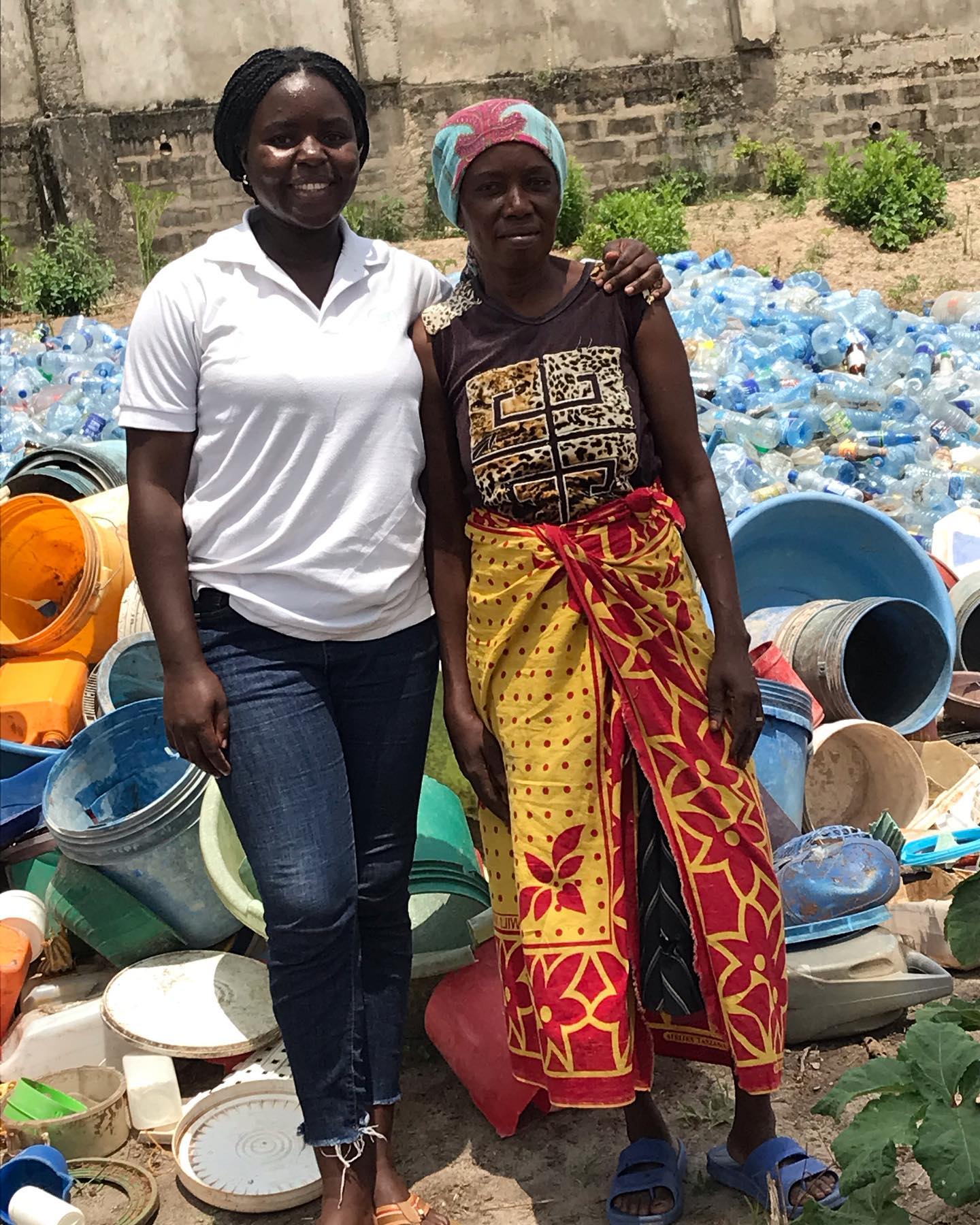
Women and youth empowerment
Libe Green Innovation have programs and project activities that aim to contribute to the reduction of unemployment, among the youth and women in Dar Es Salaam through the creation of employment opportunities in Waste Management like recycling.
We also offer Skills and capacity-building training to women and youth platforms like trash fashion shows, and school clubs to show up their talents while conserving their environment.
Libe Green Innovation works with women empowering them through various activities, organizing initiatives and training on different activities. These are aimed at empowering women and realizing their potential such as upcycling materials, reusing, and making decorations and arts from waste especially plastic wastes that could enable them to gain extra income.
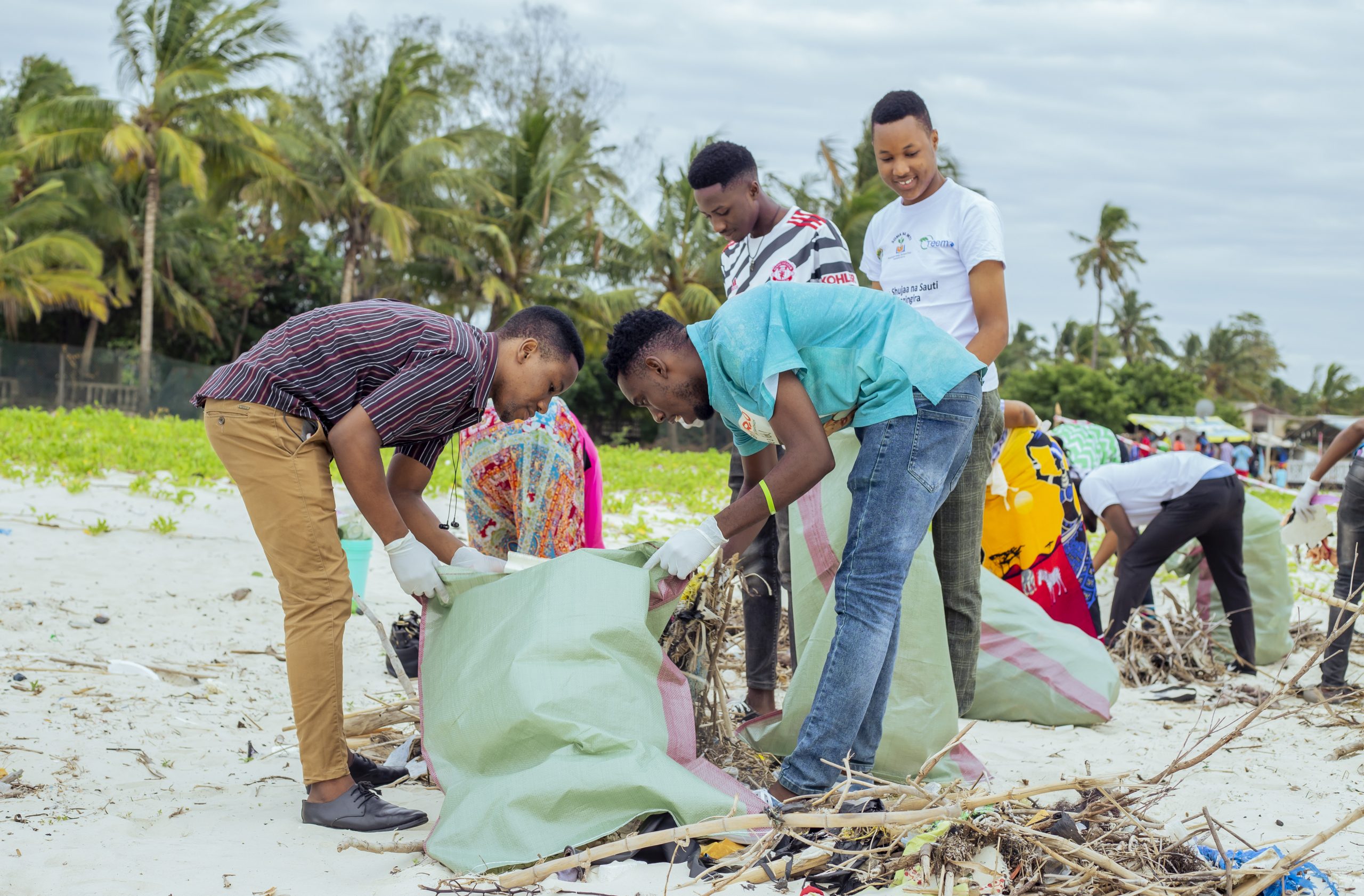
We regularly host, organize, and coordinate sustainable community engagement programs like community cleanups, beach cleanups and eco dialogues for a sustainable environment. In our social events like cleanups, we bring volunteers together to clean, repair, and improve public spaces or other areas that have been neglected, vandalized, or misused.
The aim of conducting these cleanups is to conserve our environments like beach areas. We also advocate and raise awareness so that a clean environment could be an integral part of the community life in these communities thus changing human behaviours. In these cleanups, Data are collected in an approach called Waste and brand audits (WABA) and surveying mapping using QGIS mapping tools to get insights into the extent of waste pollution. These data are used to initiate policies change, and amendments and call action to the formation of extended producer responsibility (EPR).
BEACH AND COMMUNITY CLEANUP
Waste and Brand Audits is a citizen science initiative that involves recording data on plastic waste to help identify the companies responsible for plastic pollution and hold them accountable. This activity involves establishing and documenting various types of wastes found in the environment after Cleanup and a brand audit involves counting and documenting the brands found on the wastes collected to identify companies responsible for producing the waste leading to pollution. This help to put pressure on companies to change by showcasing their brands as garbage to the environment. Data collected in these cleanups are analysed and processed to produce quantitative and qualitative information like reports, and maps that indicate places where we conducted a Cleanup and showcase which area is problematic in terms of waste on the environment
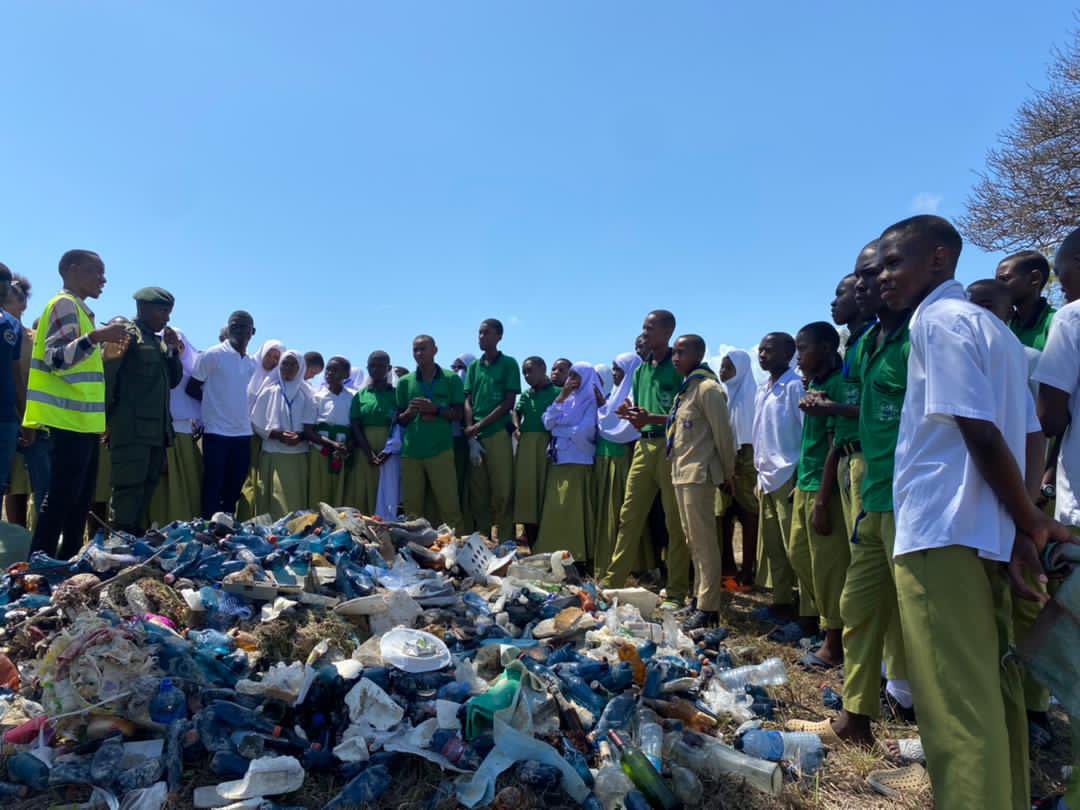
It’s a forum through which students can reach out to engage their parents and society to promote sound environmental behaviour. These clubs empower students to explore environmental issues beyond their school curriculum. Kids For Future School Clubs project is made up of motivated students and teachers who learn about environmental conservation and issues and take action to improve their immediate environment.
KIDS FOR FUTURE SCHOOL CLUBS
Our clubs generate awareness, build attitudes, and enable students to take up activities in the real world in a way that the curriculum is not inclusive. In these clubs, teachers are coordinators of the Kids for Future Clubs. Training sessions are carried out for teachers and students on how to set up the clubs.
Our Team also provides written guidelines for running the clubs are provided for interested schools. These guidelines indicate will illustrate how the Kids for Future clubs can be initiated, what activities should be carried out by the club and help the coordinator to successfully run the club and reach out to the community to lead students towards action to participate in appropriate action to help solve these problems and avoid future problems. Schools attend training regularly and awards are given to encourage the club members.
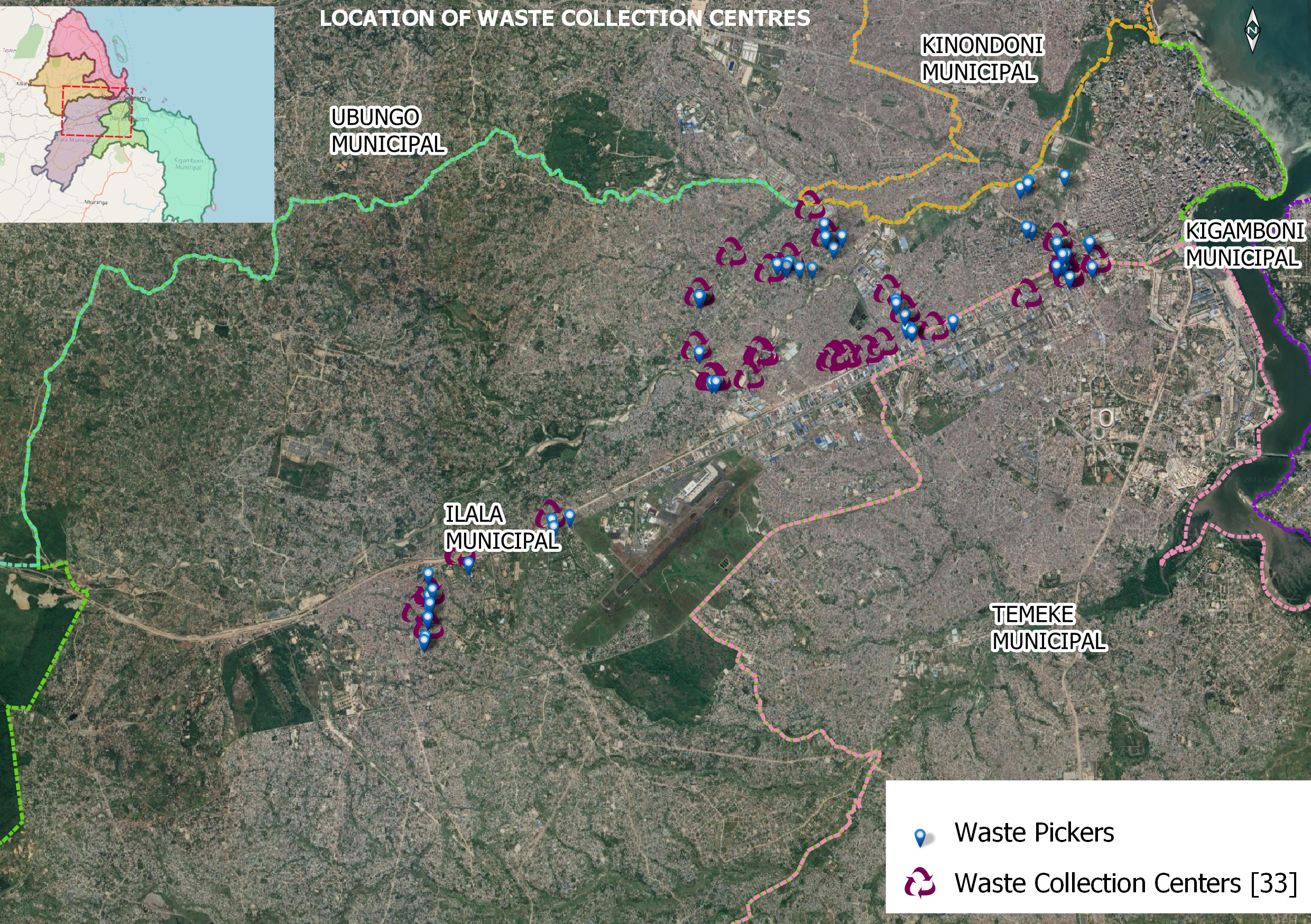
This is a project organized by the Royal Academy of Engineering carried out by Libe Green Innovation in collaboration with Sheffield University aimed to develop a data systems model for the Ilala City council in the Dar Es Salaam Region and manage data on recyclable materials.
The project was conducted in vast Ilala where the project reveals the pattern and distribution of collection centres and waste pickers since.
DATA AND SYSTEMS MAPPING PROJECTS
Dar es salaam region lacks a regulated solid waste recycling system due to the lack of an incomplete database for manufactured items where recycling mostly is driven by households’ initiatives and waste pickers in towns and cities to earn money for survival led by the male by 89% and women waste pickers were only 10% and most aged from 26 to 35. Most of the collected recyclable items collected by waste pickers are PET HDPES PPC and sacks where per day one collects a minimum of 30kg per day.
Most of the Waste Pickers (WP) involved in the project were not residents of Dar es Salaam city council most came to the city in pursuit of a better life and escape from poverty. They are faced with a lot of problems during their work and within the society that they live in most lack Protective equipment PPES, are underpaid and society views them as thieves and mentally ill.
Subsribe To Our Newsletter
Stay in touch with us to get latest news and special offers.
